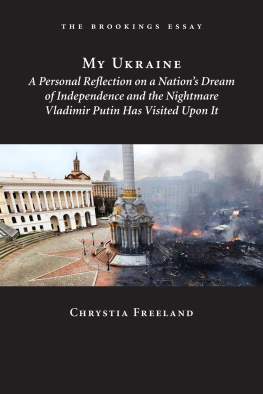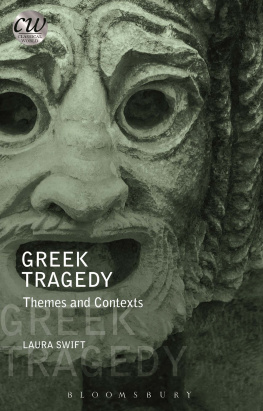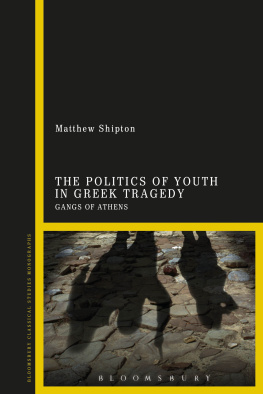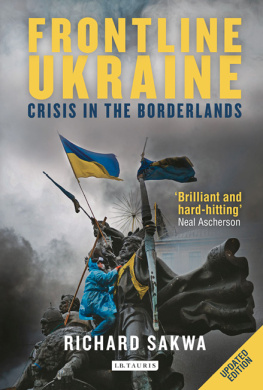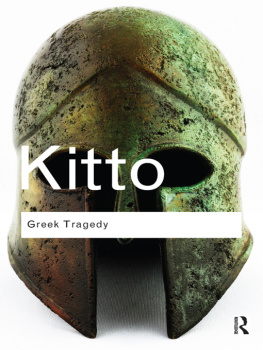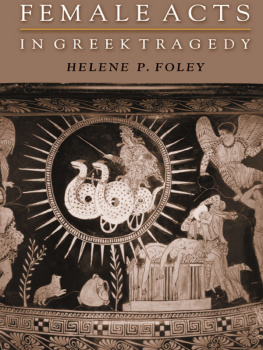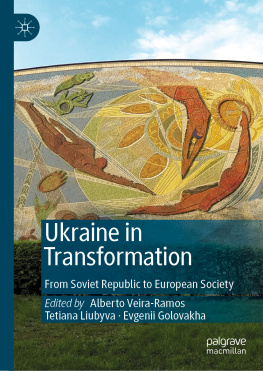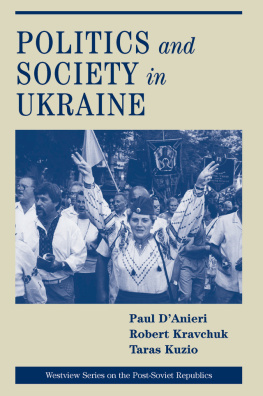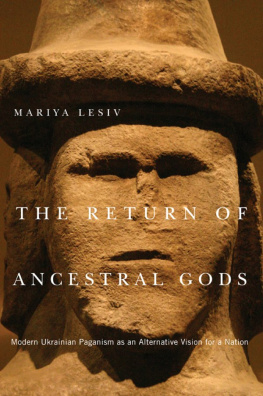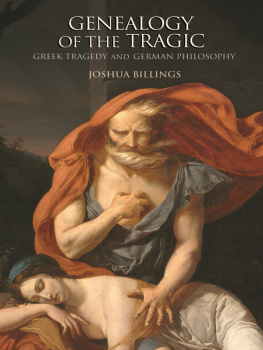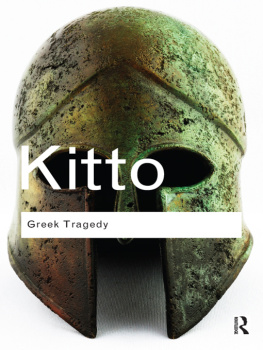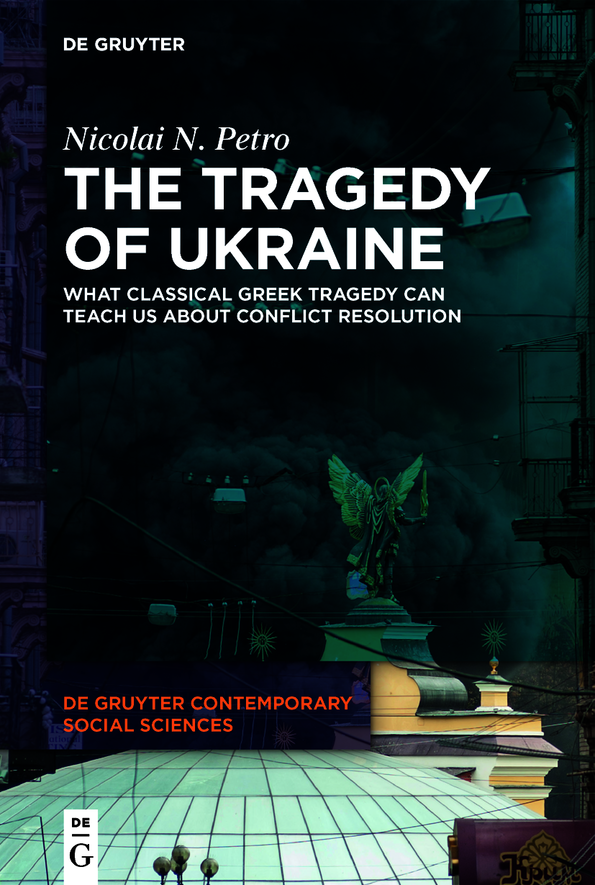De Gruyter Contemporary Social Sciences
Volume
ISBN 9783110743241
e-ISBN (PDF) 9783110743371
e-ISBN (EPUB) 9783110743470
Bibliographic information published by the Deutsche Nationalbibliothek
The Deutsche Nationalbibliothek lists this publication in the Deutsche Nationalbibliografie; detailed bibliographic data are available on the Internet at http://dnb.dnb.de.
2023 Walter de Gruyter GmbH, Berlin/Boston
Justice tilts the scale to give learning to those who suffer.
Aeschylus, Agamemnon, 250.
List of Figures and Tables
Map 2.1:
Electoral Divisions in Ukraine (19942019).
:
Private Transfers to Ukraine Compared to FDI in Billions of USD (20122017).
:
Regions Asked What is Your Homeland? (January 2013).
:
Percentage of the Electorate Approving the 1991 Act of Independence.
:
How Important for Ukraine Is the Problem of Developing the Ukrainian Language? (September 2020).
:
President Petro Poroshenko on the Ukrainian Fifth Column.
:
Ukrainian Officials on the Treasonous Nature of Maloross Ukrainians.
:
The Cycle of Tragedy and Healing.
:
Ukraines Projected Debt Repayment Schedule (2019).
:
Number of Ukrainians Receiving Russian Citizenship (20172020).
:
What Language Do Ukrainians Ages 1429 Speak at Home? (2018).
:
Donetsk Referendum and Lugansk Opinion Poll of March 27, 1994.
:
Donetsk and Lugansk Referenda of May 11, 2014.
Acknowledgements
Over the decade that it has taken me to write this book, I have received generous assistance from many different sources. My debt begins with the Ukrainian Academy of Sciences and Ukrainian Forum, which first invited me to visit Kiev in 2008. Two years later, Vladimir Karazin National University in Kharkov arranged for me to give a series of talks there. The US Fulbright Commission sponsored me on a Fulbright to Ilya Mechnikov National University in Odessa, Ukraine for the academic year 20132014, where then Rector Igor N. Koval, Dean Viktor Glebov, and Professor Volodymyr Dubovyk graciously organized several lectures for me.
The Universities of Pisa and Bologna in Italy not only offered me opportunities to speak, but also invited me to participate in the supervision of three graduate theses dealing with Ukraine. This culminated, in 2021, in a Visiting Fellowship at the Institute for Advanced Studies of the University of Bologna, where I first presented three lectures that later became the foundation for this book. Subsequent speaking engagements at Brown, Johns Hopkins, the Monterey Summer Symposium on Russia, Fairfield University, the Austrian International Institute for Peace, and the Research Center of Post-Soviet Countries in Moscow, all helped me to further refine my arguments.
Unsparing financial assistance was provided by the University of Rhode Island, which not only funded two year-long sabbatical leaves, most of which were spent in Ukraine, but also helped defray the costs of copyediting and indexing through competitive awards from the URI Center for Humanities and the URI Provosts Office. Special thanks go to Michaela Goebels, De Gruyters Book Content Editor, for shepherding this book through to publication.
Finally, no words can ever adequately express my debt to my wife, Allison, who patiently endured my many weekends writing, media interviews at all hours of the day, and long stays overseas, often in less than ideal circumstances. Having been married to her for nearly forty years, I can honestly say that this is our book.
Introduction
I have been following events in Ukraine since 2008, when I was invited to give a talk by the National Academy of Sciences of Ukraine, and participated in a panel chaired by former Ukrainian President Leonid Kuchma. Since then, my wife and I have visited Ukraine almost every year. While there we traveled widely, fascinated by the countrys rich history and regional diversity. In 2013 I was awarded a Fulbright research award to go to Ukraine for the entire academic year. It proved to be a fateful year, with the Maidan protests beginning just three months after our arrival. My original research agenda, which was to explore the role of the Russian Orthodox Church in Ukraine, quickly fell by the wayside as I struggled to understand what was taking place around me.
The most popular view then, as now, is that the countrys post-Maidan crisis is entirely the result of Russian aggression. What makes this explanation less than complete, however, is that Ukraines historical and cultural divisions are well established, and have been a prominent theme in scholarly writing about the country. It is hard to imagine how they could suddenly be divorced from current events. I therefore agree with Mykola Riabchuk (with whom I agree on little else) that, the problem remains to find the essence of the Ukrainian discord that cannot be exclusively attributed to Russian subversion or even invasion. To my mind, this means paying more, not less, attention to Ukraines historical and cultural diversity.
I had no satisfactory framework for explaining the intensity and persistence of the countrys internal discord, however, until I stumbled upon Richard Ned Lebows book, The Tragic Vision of Politics. In it, I recognized processes comparable to those I had witnessed in Ukraine passionate nationalism and revolutionary zeal, followed by the repudiation of sound policy options and the rise of social tensions. Lebows classic work focuses on international relations, but I felt confident that approaching Ukrainian society through the lens of classical Greek tragedy would reveal many of the same underlying social pathologies.
Further study of classical Greek tragedy led me to the conclusion that a tragic political cycle can manifest itself in a number of different ways. Social decline, for example, is often foreshadowed by the increasing shrillness of domestic political discourse and the demonization of ones domestic opponents. Another prominent feature is the rise of nationalism, which can itself become a form of collective psychosis. But despite classical Greek tragedys value for gaining insight into the emotional roots of conflict, modern political science seems to have entirely forgotten that its most important function was to heal society and to reconcile former enemies; in other words to assist in conflict resolution.
This provided me with the missing piece of the puzzle. The essence of the Ukrainian discord, to use Riabchuks felicitous phrase, lay in the states reluctance to recognize the Other Ukraine the third of the population that regards its own Russian cultural identity as compatible with a Ukrainian civic identity as a legitimate part of the Ukrainian nation. Todays tragic events thus form part of a much larger tragic cycle that has befuddled Ukrainian political elites for over a century. This cycle is fed by the destructive narratives that one side tells about the other, which then legitimize conflict in the name of achieving justice. Trapped by their insistence on correcting the injustices of the past before engaging in dialogue, both sides have unwittingly contributed to the perpetuation of their mutual tragedy.
My discussion of the role that tragedy has played in Ukraines social discord, and the role that it can play in its healing, proceeds as follows. Chapter One reminds readers of the unique social and therapeutic impact of tragedy during the heyday of Athenian democracy the fifth century BCE. After describing how tragedy sought to transform Athenians into better and more compassionate citizens, it explores why modern political science abandoned tragedy, and concludes by suggesting that a tragic vision of politics has untapped potential for healing Ukraine.


